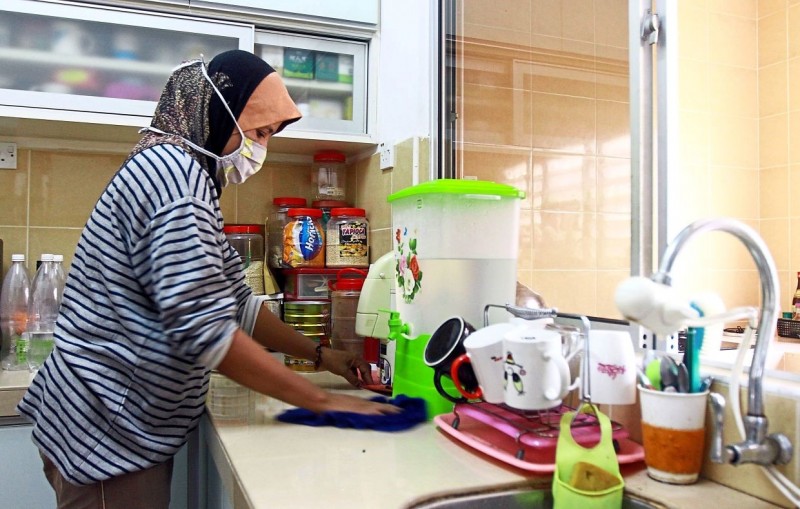
Image credit: The Star
MALAYSIA could experience more shortage of domestic helpers if there is no willpower to improve wages and job treatment of foreign workers in the country, experts said.
“If wages and treatment do not change, I don’t see much changing in this sector aside from it experiencing more shortages and potentially pushing Malaysians into these jobs, which typically are lower-paying with not many amenities,” Asia School of Business assistant economics Prof Dr Melati Nungsari told The Malaysian Reserve in an email interview.
Radical shift, she said, does not only involve increasing wages, it also should look into improving the work package and mindset as a whole.
“Our modus operandi of paying little and treating poorly will not work anymore. With higher wages and better policies surrounding the treatment of migrant workers, we could potentially lure them back into our country, but given the current trajectory, this would require a quite radical shift,” she explained.
Indonesia has recently announced that it is phasing out its domestic workers gradually, which experts said may result in households and the agencies scrambling to source from other countries.
“As Indonesia, one of the biggest exporters of domestic worker labour to us, phases out domestic workers, we can expect shortages in this sector to continue as demand for such workers does not seem to be declining,” Melati explained.
As a result, the female workforce will be impacted the most and the cost of hiring would be higher, which could potentially see Malaysia losing its female labour.
“Women were already disproportionately affected by the pandemic — in general, they occupy the lower-level jobs, which were the first to be laid off, and tend to be engaged in more precarious work.
“Now that the economy and social sector is starting to recover, these women may now be looking to return to the workforce. Question is, however, who will tend to their children? Domestic helpers could help fill in this gap,” she added.
Malaysia seeks to expedite the hiring process of foreign workers to fill the vacancies in various sectors,
from plantation to domestic work. Malaysia’s rubber industry has lost RM30 billion in the last three years due to the lack of workers.
TMR previously reported that despite the government’s green light, some businesses could not afford to operate fully as in pre-pandemic.
Meanwhile, EMIR Research head of social, law and human rights Jason Loh Seong Wei said Malaysia would not be able to reduce heavy reliance on domestic helpers, thus, there is a need to source from other countries — beyond the traditional ones.
He expects severe short-term impact with needy households and the maid agencies looking to source from other countries in the Asean region which would include Timor Leste.
“If things become even more desperate, we might even have to start sourcing from beyond such as looking to countries like India, Bangladesh, Sri Lanka, Nepal and not least Papua New Guinea,” he told TMR.
“Unless there’s a culture shift whereas in Japan, children are taught to be independent and resourceful from young and robotics play an integral part of daily living, we would continue to be ‘beholden’ to the need for domestic helpers in the long-term and foreseeable future.”
He recommended prospective local employers to have pre-employment counselling and briefing sessions for migrant worker treatment.
“We propose that the licensing regime and supervision of recruitment or placement agencies under the Private Employment Agencies Act (1981) be subject to stricter approval. In addition, there’s also a need to augment the digitalisation of the application process to cut out the use of these middle-men or brokers,” Loh said.
He added that the role of the Anti-Trafficking in Persons and Anti-Smuggling of Migrants Council established under Section 6 of Anti-Trafficking in Persons and Anti-Smuggling of Migrants Act 2007 in investigating and charging enforcement agencies for corruption relating to and collusion in facilitating trafficking activities should be reviewed and strengthened.
Source: https://themalaysianreserve.com/2022/04/25/improve-treatment-of-domestic-helpers-to-resolve-shortage/

